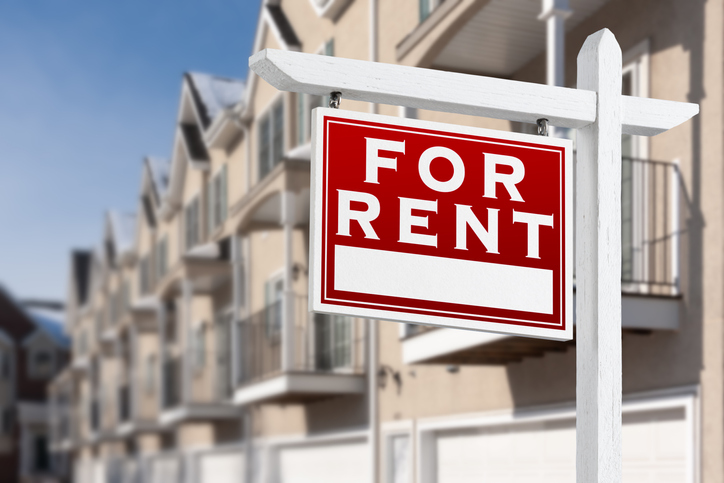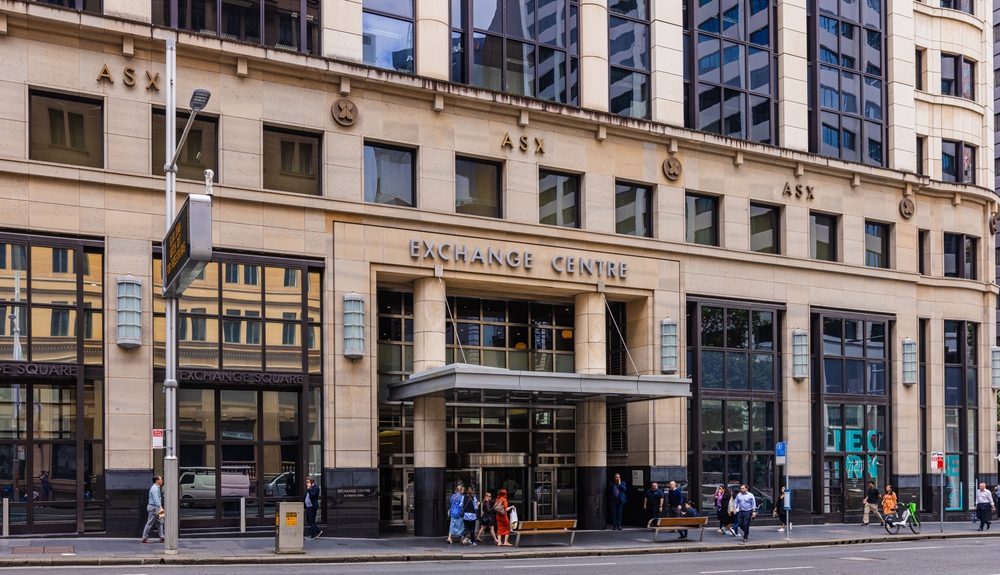In a Slowing Housing Market, Sellers Ask: Why List a Home When You Can Collect Rent?
U.S. home sellers increasingly opt to hold on to their houses amid a soaring home-rental market
After Mark and Melissa Reichert moved from California to Dallas, the couple put their home in the Los Angeles suburbs up for sale this summer. Yet even after they cut the asking price by $10,000, there was hardly any interest.
Instead, they decided to rent out the house. Their monthly payout now covers their ownership costs. If the housing market remains sluggish, they would likely keep the home as a rental once the current two-year lease expires, Mr. Reichert said.
“There’s just not serious buyers out there,” he said.
Home sellers across the U.S., discouraged by the slowing housing market and able to capitalise on the soaring home-rental market, are increasingly opting to hold on to their houses and lease them out instead.
Higher mortgage-interest rates have reduced home-buying demand, and homes are sitting on the market for longer. Home prices have slid from their springtime peaks in some markets, and some sellers are reluctant to lower their asking prices.
And with many prospective home buyers priced out of the market, rents for single-family homes have soared in recent years.
As prospective sellers shift from selling to renting, that is pulling supply out of the for-sale market, just as the number of homes for sale was starting to rise from near record lows. The tight supply of homes for sale is a big reason why prices continue to climb even as sales decline.
The number of home listings that were delisted without going under contract rose 58% in August from a year earlier, though the overall number remains a small portion of total listings, according to brokerage HouseCanary.
The phenomenon of delisting and renting out has become noticeable enough that John Burns Real Estate Consulting asked 1,000 real-estate agents about it for the first time. The numbers varied widely by region but were significant in some popular markets. In Southern California, 10% of home sellers switched their listings from for-sale to for-rent due to higher mortgage rates, and 9% in Texas did so, according to the survey.
“People are hearing that rents are going up, so they’re saying, ‘Well if I can’t sell it for what I want, I’ll just rent it, because I’ll get a really good rent,’” said Anthony Lamacchia, who owns a Waltham, Mass.-based real-estate brokerage and a property-management company.
Homeowners often rely on the proceeds of a home sale for a down payment or to help them qualify for a mortgage to purchase a new home. New companies and products have sprung up in recent years to help homeowners buy before they sell, or buy without selling at all.
“In a market that’s flat or down, you are going to have a lot of people who probably don’t want to sell right now,” said David Friedman, chief executive of Boston-based Knox Financial, which offers loan products, property management and other services to homeowners who want to turn their homes into rental properties. “We certainly expect people to decouple when they buy from when they sell, and part of the way to do that is to rent.”
Many homeowners have locked in borrowing costs below the current average mortgage rate. By choosing to become landlords, would-be sellers are betting they can still profit from the value of their house, if rents continue to rise while their mortgage payments remain fixed.
“Properties that we were leasing out for $1,500 last year now have pushed up by $300 to $400 a month,” said Chris Harden, broker and property manager at Re/Max Four Corners in the Dallas suburbs.
Owning rental property comes with risks, including disputes with tenants, unexpected repair costs or a slowdown in the rental market. Real-estate agents said many people renting out their previous homes are likely to sell once sales rebound, though others could choose to maintain them as rental properties indefinitely.
In the pricey suburbs of Silicon Valley, Coldwell Banker Realty agent Ramesh Rao said it is becoming more common for people to choose the rental option when they move to a new home.
“They feel that the concern of being a landlord is very much minimised, given the high quality of the tenant they can expect,” Mr. Rao said.
Turning their previous homes into rentals also helps homeowners avoid local home sales taxes, which can add up to a percentage point or more of the sale price, Mr. Rao said.
An increase in rental inventory could help flatten rent growth. Rents for single-family homes nationally rose 13.4% in June from a year earlier, slightly off from 14% year-over-year growth in April, according to housing-data firm CoreLogic.
Demand from renters, however, is still growing. The John Burns Real Estate Consulting survey found that 11% of prospective home buyers nationally switched in July from wanting to buy a home to renting instead. In Texas, the share of buyers switching to renting was 24%, the highest in the nation.
 Copyright 2020, Dow Jones & Company, Inc. All Rights Reserved Worldwide. LEARN MORE
Copyright 2020, Dow Jones & Company, Inc. All Rights Reserved Worldwide. LEARN MORE
This stylish family home combines a classic palette and finishes with a flexible floorplan
Just 55 minutes from Sydney, make this your creative getaway located in the majestic Hawkesbury region.
As Paris makes its final preparations for the Olympic games, its residents are busy with their own—packing their suitcases, confirming their reservations, and getting out of town.
Worried about the hordes of crowds and overall chaos the Olympics could bring, Parisians are fleeing the city in droves and inundating resort cities around the country. Hotels and holiday rentals in some of France’s most popular vacation destinations—from the French Riviera in the south to the beaches of Normandy in the north—say they are expecting massive crowds this year in advance of the Olympics. The games will run from July 26-Aug. 1.
“It’s already a major holiday season for us, and beyond that, we have the Olympics,” says Stéphane Personeni, general manager of the Lily of the Valley hotel in Saint Tropez. “People began booking early this year.”
Personeni’s hotel typically has no issues filling its rooms each summer—by May of each year, the luxury hotel typically finds itself completely booked out for the months of July and August. But this year, the 53-room hotel began filling up for summer reservations in February.
“We told our regular guests that everything—hotels, apartments, villas—are going to be hard to find this summer,” Personeni says. His neighbours around Saint Tropez say they’re similarly booked up.
As of March, the online marketplace Gens de Confiance (“Trusted People”), saw a 50% increase in reservations from Parisians seeking vacation rentals outside the capital during the Olympics.
Already, August is a popular vacation time for the French. With a minimum of five weeks of vacation mandated by law, many decide to take the entire month off, renting out villas in beachside destinations for longer periods.
But beyond the typical August travel, the Olympics are having a real impact, says Bertille Marchal, a spokesperson for Gens de Confiance.
“We’ve seen nearly three times more reservations for the dates of the Olympics than the following two weeks,” Marchal says. “The increase is definitely linked to the Olympic Games.”

Getty Images
According to the site, the most sought-out vacation destinations are Morbihan and Loire-Atlantique, a seaside region in the northwest; le Var, a coastal area within the southeast of France along the Côte d’Azur; and the island of Corsica in the Mediterranean.
Meanwhile, the Olympics haven’t necessarily been a boon to foreign tourism in the country. Many tourists who might have otherwise come to France are avoiding it this year in favour of other European capitals. In Paris, demand for stays at high-end hotels has collapsed, with bookings down 50% in July compared to last year, according to UMIH Prestige, which represents hotels charging at least €800 ($865) a night for rooms.
Earlier this year, high-end restaurants and concierges said the Olympics might even be an opportunity to score a hard-get-seat at the city’s fine dining.
In the Occitanie region in southwest France, the overall number of reservations this summer hasn’t changed much from last year, says Vincent Gare, president of the regional tourism committee there.
“But looking further at the numbers, we do see an increase in the clientele coming from the Paris region,” Gare told Le Figaro, noting that the increase in reservations has fallen directly on the dates of the Olympic games.
Michel Barré, a retiree living in Paris’s Le Marais neighbourhood, is one of those opting for the beach rather than the opening ceremony. In January, he booked a stay in Normandy for two weeks.
“Even though it’s a major European capital, Paris is still a small city—it’s a massive effort to host all of these events,” Barré says. “The Olympics are going to be a mess.”
More than anything, he just wants some calm after an event-filled summer in Paris, which just before the Olympics experienced the drama of a snap election called by Macron.
“It’s been a hectic summer here,” he says.

AFP via Getty Images
Parisians—Barré included—feel that the city, by over-catering to its tourists, is driving out many residents.
Parts of the Seine—usually one of the most popular summertime hangout spots —have been closed off for weeks as the city installs bleachers and Olympics signage. In certain neighbourhoods, residents will need to scan a QR code with police to access their own apartments. And from the Olympics to Sept. 8, Paris is nearly doubling the price of transit tickets from €2.15 to €4 per ride.
The city’s clear willingness to capitalise on its tourists has motivated some residents to do the same. In March, the number of active Airbnb listings in Paris reached an all-time high as hosts rushed to list their apartments. Listings grew 40% from the same time last year, according to the company.
With their regular clients taking off, Parisian restaurants and merchants are complaining that business is down.
“Are there any Parisians left in Paris?” Alaine Fontaine, president of the restaurant industry association, told the radio station Franceinfo on Sunday. “For the last three weeks, there haven’t been any here.”
Still, for all the talk of those leaving, there are plenty who have decided to stick around.
Jay Swanson, an American expat and YouTuber, can’t imagine leaving during the Olympics—he secured his tickets to see ping pong and volleyball last year. He’s also less concerned about the crowds and road closures than others, having just put together a series of videos explaining how to navigate Paris during the games.
“It’s been 100 years since the Games came to Paris; when else will we get a chance to host the world like this?” Swanson says. “So many Parisians are leaving and tourism is down, so not only will it be quiet but the only people left will be here for a party.”
This stylish family home combines a classic palette and finishes with a flexible floorplan
Just 55 minutes from Sydney, make this your creative getaway located in the majestic Hawkesbury region.






















